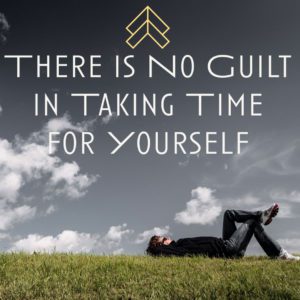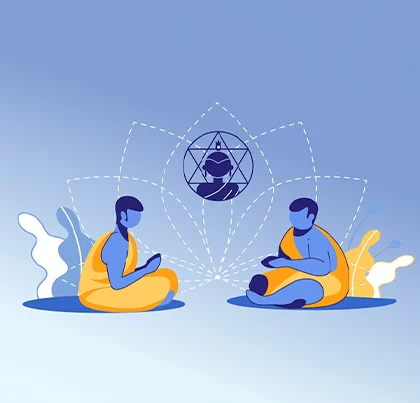There is No Guilt in Taking Time for Yourself

Recovery and relaxation have an exciting relationship. While relaxing is an incredibly important part of the recovery process that can help reinforce healthy habits and mitigate stress, it can also come coupled with guilt in taking this time for oneself. There is always something to work on through recovery, new challenges to tackle, or new coping strategies to learn to help someone continue down their path to sobriety. However, taking time for one’s self is just as important as attending regular meetings. This time for relaxation has therapeutic value in itself. It should be treated as an essential part of each day, both for one’s mental health and establishing a healthy, sustainable daily schedule.
Why Is it So Hard to Relax?
Relaxation itself can be a hurdle. For some, the constant, hectic lifestyle they may lead between their work and personal responsibilities may make the idea of taking a break a challenging prospect. Others may see their time in recovery as a time where they need to continually push themselves every hour of every day to get the most out of their programs. When surrounded by expectations and stresses, the idea of detaching and relaxing can seem difficult to justify. However, this time is also essential for one’s continued success in recovery and isn’t lazy, even if it may feel so on the surface. It is okay to take time to relax in recovery. Still, it is also highly encouraged for each person to mitigate the chances of reaching overwhelming states of exhaustion and begin one’s recovery by instilling healthy daily practices.
While someone may have any number of people in their corner through recovery, each person’s journey to sobriety is ultimately their own, and there is no time limit that someone can put on themselves to overcome addiction. Some may feel the weight of these stresses or the stresses of not wanting to let down their loved ones. Relaxation is essential in helping each person understand that their time is wholly their own and that they can use it to best help them address their recovery in a personal way. Practicing life skills is essential, as is ensuring that each person maintains healthy energy levels and a healthy emotional state to continue internalizing all of the other vital aspects of recovery. Relaxation is just as important as anything else.
Practicing Relaxation
Understanding that relaxation is an essential part of the recovery process is the first step. Still, someone also has to be able to incorporate relaxing practices into their lives. Relaxation will look different for each person, and every individual will be encouraged to find ways to relax and recuperate from the mental stresses of the day. Yoga is a common and practiced way in which someone can allow their mind to ease and begin to let go of anxieties and is something that can continue to be practiced in one’s residence. However, there are several other ways that someone can find their methods of relaxation.
Finding these practices means knowing that someone will have to balance all of these aspects equally and that no one element can completely dominate someone’s life in recovery. It is important to practice new strategies, coping mechanisms, life and social skills, and relaxation, all in equivocal measures. Even something like playing video games, whether or not someone is taking a media approach to their therapy, can prove to be the kind of detachment that someone needs to rejuvenate their mental stamina to tackle the emotional stresses of a group meeting later in the day.
Knowing how someone wants to relax, one can further internalize relaxation’s necessity by scheduling it into their days alongside other responsibilities. Seeing these breaks mixed in through the day can help illustrate how each person’s time is truly their own. It can help someone confront the guilt that they may harbor about taking a “break from recovery,” but the fact is that this break is itself part of the recovery process. Recovery is a long, taxing experience that can’t be sped up. Setting in for the journey ahead, and realizing that relaxation and continued mental and physical health are just as crucial as any therapy meeting. It is a way to balance one’s recovery and experiment with their own sober identity by taking time for themselves. Taking a break and relaxing every once in a while can be the best thing for someone and their continued mental health and sobriety.
Finding a way to relax through any stage of recovery, whether someone is just beginning their journey to sobriety or continuing their recovery through an intensive outpatient program, is essential. To practice relaxation, you must find the perfect relaxation method for you. Brighton Recovery Center can help you find your balance between relaxing, recuperative activities, and your continuing recovery efforts. Our comprehensive, six-building campus includes amenities from meeting halls and sober residences to medical assistance and an inclusive recreation center. Several options of relaxation will help you remain active in an understanding and encouraging recovery community. Some options for relaxing between your appointments may be attending yoga classes, playing basketball, meditation, sitting with a good book in the coffee shop, or browsing the thrift store. To learn about how we can personalize a program to your needs and unique situation, call to speak to one of our caring, trained staff members today at (844) 479-7035.



